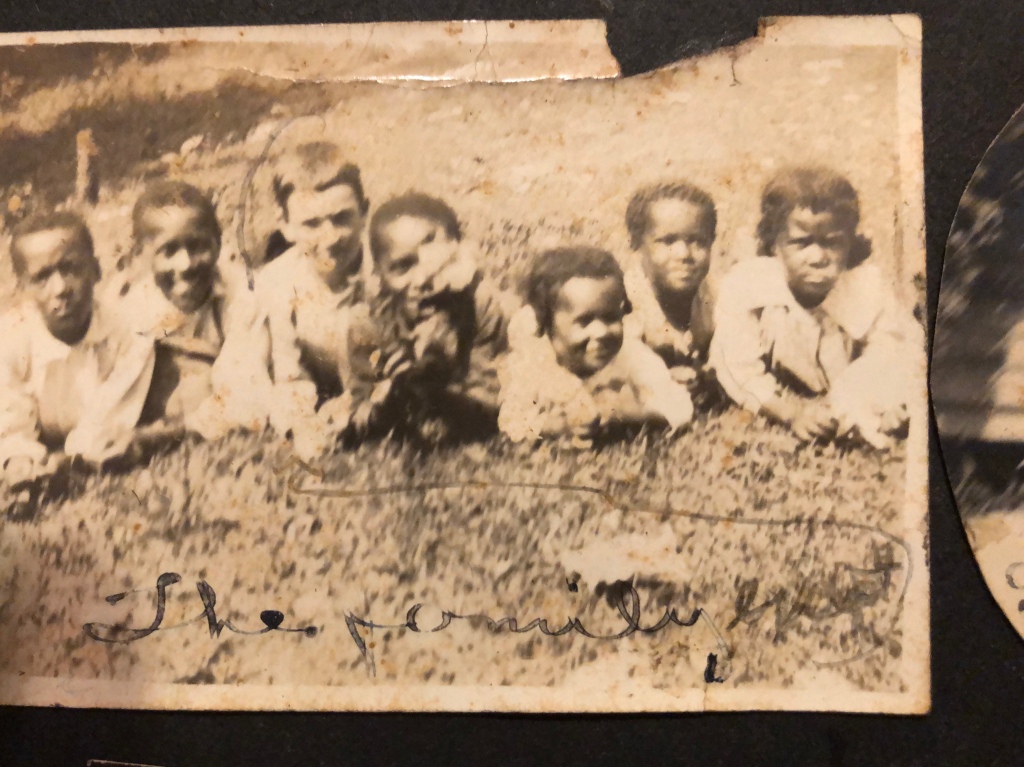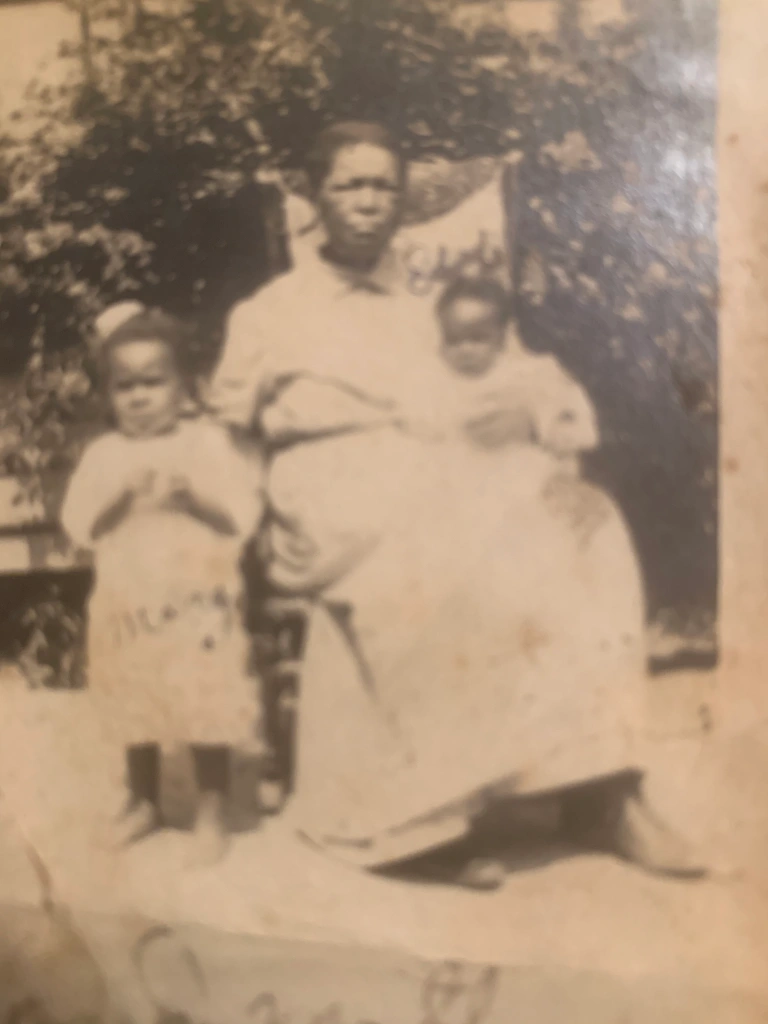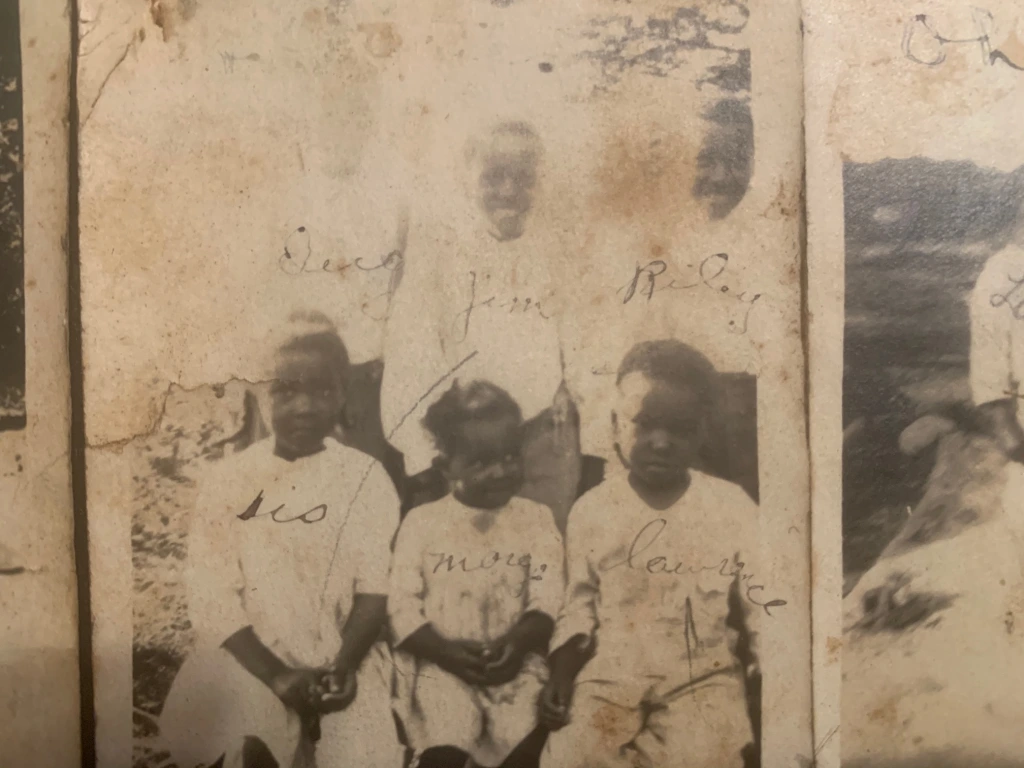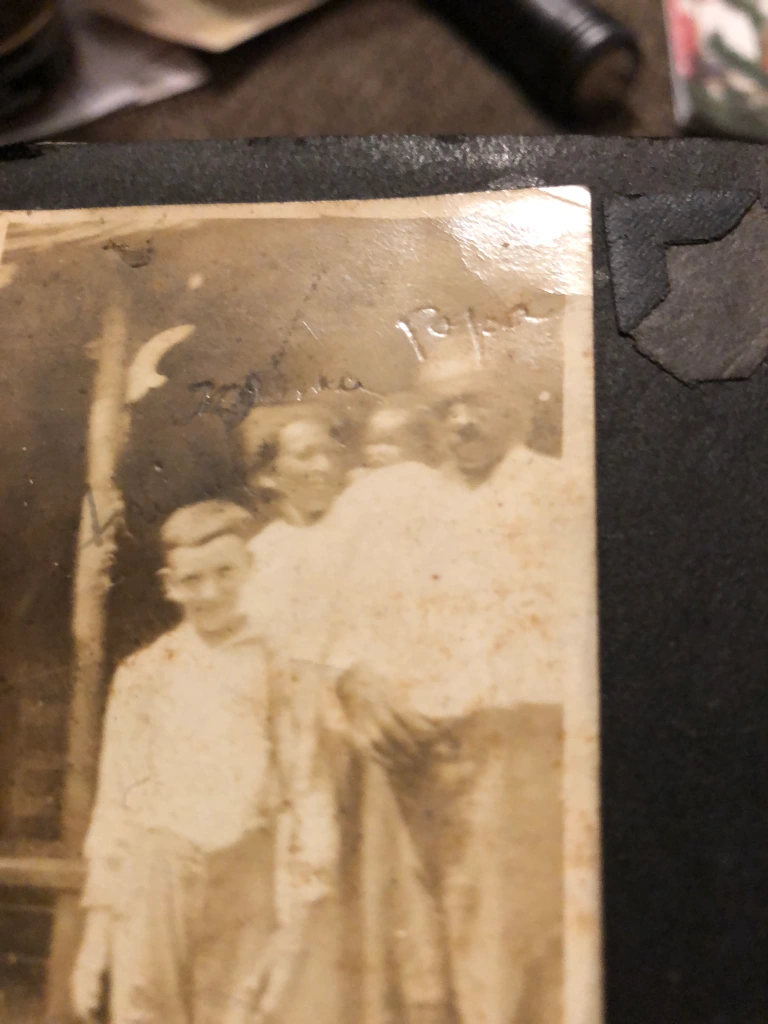“The fragrance always remains in the hand that gives the rose.” — Chinese proverb
With the John and Maldonia Fullwood Family Reunion coming up this summer and my dad’s birthday this week, sentimentality and family pride have been stirred. The portrait below is of Mary Maldonia McGimpsey Fullwood, my great-grandmother who was born 132 years ago. She died before I was born, yet I have always felt a deep connection to her because of my father’s profound affection and memories of his grandmother, as revealed in the story that follows. Maldonia was a mother of 10 children and I recently posted stories about some of them here, as well as a story about her dad here.

Mary Maldonia McGimpsey Fullwood, circa 1945
ROSE GARDENER
by Allen Fullwood
A story from Giving Back: A Tribute to Generations of African American Philanthropists
Cherished times grew plentiful on the front porch of my grandmother’s home. My sister, cousins and I spent a large share of our childhood playing up and down Bouchelle Street and around Mama’s house. Mama Fullwood is what the other grandchildren called her, but to me she was always just Mama.
Mama’s porch was a beloved gathering spot for extended family while I was coming up. During the long stretch of summer in the South, you could find Mama sitting in her favorite chair, uncles and aunts perched on the banister and visitors often overflowing to the lawn. One too many cousins and I usually pressed our luck to sit snugly together in the porch swing that hung by a slim chain. As passersby neared the house, Mama would invite them to come up and sit a spell. Unless something was pressing, refusals were few.
At the corner of the porch sprung a beautiful rosebush that bloomed bountifully around Mother’s Day. It was sort of a tradition for neighbors along Bouchelle to stop by Mama’s house Sunday morning or the day before for a red blossom clipped from her rosebush. This simple gift was emblematic of her generosity, and I can picture her smile as she graciously gave each rose.
Monetary wealth was not found in our family, yet Mama earned a reputation for being a generous woman who loved her family deeply, served her church devoutly and gave to all freely. Her manner of treating people provided lessons everyday about giving of yourself, your time, your energy and a kind word. When called to give material objects including money, she taught us to give ungrudgingly.
Mama cared for her family like she tended her rosebush. She exposed each of us to the light of church and faith, rooted us in tradition, nurtured us with encouragement and was prompt to prune us when we grew unwieldy and wild. Her good deeds were a trellis during our upbringing. She likely smiles among the clouds as she watches the seeds of her generosity blossoming today.























